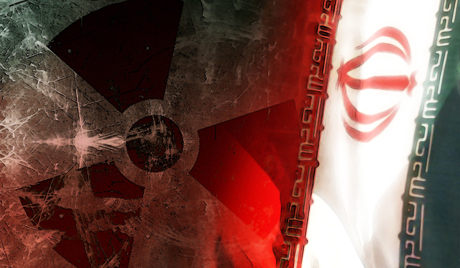Fifth round of Iran-Group 5+1 nuclear talks held at technical level ended about an hour ago and the two sides' negotiators are to inform the top officials in their capital cities of talks' outcome, IRNA reported.
The Head of the Iranian technical negotiations team Hamid Ba'eidinezhad in an interview with IRNA in Vienna announced the ending of this round of talks, reiterating, "The Wednesday and Thursday intensive, technical negotiations were focused on technical details, which were surveyed painstakingly."
"The results of this technical round of talks will be delivered to the top officials of the two sides," said the member of the Iranian team of negotiators.
Ba'eidinezhad was the head of the Iranian team of technical nuclear negotiators in this term of the talks and the Deputy EU Foreign Policy Chief Stephan Clement was the head of the delegation comprised of five UN Security Council member states with veto vote power and Germany.
The Iranian Deputy Foreign Minister for Security and International Affairs Seyyed Abbas Araqchi had earlier told IRNA that various technical issues were to be discussed in this round of talks.
The senior member of the Iranian negotiation team also said that the two sides' technicians will try to bring closer the viewpoints of the two sides.
The deputy foreign minister added that the final decision about the outcome of the technical talks will be adopted at the political level.
Iran and the six world powers had held the 4th round of Vienna technical nuclear talks from May 13 to 16 aimed at preparing the final text of a comprehensive agreement. That round of talks was described by both sides as "tough and complicated" and ended without achieving "any tangible progress" due to the existence of numerous differences of opinion.
Zarif and Ashton, therefore, held no joint press conference at the end of that round of talks.
Later on, on May 5 and 6, the Iranian Foreign Minister Mohammad-Javad Zarif and the EU Foreign Policy Chief Catherine Ashton met unofficially on May 26 and 27 in Istanbul, Turkey and held eight hours of intensive talks.
In addition to Zarif and Aston, their deputies Seyyed Abbas Araqchi and Helga Schmidt held bilateral talks simultaneously, and Hamid Ba'eidinezhad and Stephan Clement, too, surveyed the ways for managing the future round of Iran-G5+1 talks at the same time.
Among the decisions adopted during the Istanbul negotiations there was holding the world powers' nuclear talks simultaneously with the International Atomic Energy Agency (IAEA) Seasonal Board of Governors meeting in Vienna.
The next round of Iran-G5+1 nuclear talks, to be headed by Foreign Minister Mohammad-Javad Zarif and Foreign Policy Chief Catherine Ashton, is scheduled for June 16-19 in Vienna, Austria.
At a weekly board meeting of the International Atomic Energy Agency, IAEA Director General Yukiya Amano said on Thursday Iran had finally begun to engage with an investigation into allegations that it has worked on designing a nuclear warhead.
Western envoys to the IAEA welcomed the development, calling for Tehran to pick up the pace of its cooperation.
The Middle Eastˈs only nuclear-armed power, Israel has several times warned it could carry out unilateral strikes on Iranˈs nuclear sites.
Iran, which rejects accusations that it has been trying to develop a nuclear bomb capability, says it is Israelˈs presumed arsenal that endangers regional peace and security.
US officials say it is vital for Iran to resolve the IAEAˈs concerns if the parallel negotiations between Tehran and the United States, France, Germany, Britain, China and Russia on the long-term agreement to settle the dispute are to succeed.
Iran says the allegations of a nuclear weapon agenda are baseless but has offered to address them since President Hassan Rouhani took office as Iranian president last year, partly on a platform to engage the Islamic Republic's in international cooperation once again.
Last month, Iran gave the UN watchdog some information requested in the inquiry as to its purpose in developing Exploding Bridge Wire (EBW) detonators, which can be used to set off an atomic explosive device. Iran has said it needed them for civilian purposes.
In a meeting in Tehran on 20 May Iran also agreed to address two other areas of the investigation by 25 Aug.
Western governments regard Iranˈs increased readiness to cooperate as positive but are likely to remain skeptical until it has cleared up all allegations of illicit atomic work.
ˈIt is essential that Iran delivers substantive progress in the near future,ˈ the 28-nation European Union said in a statement to the IAEAˈs quarterly board of governors meeting.






